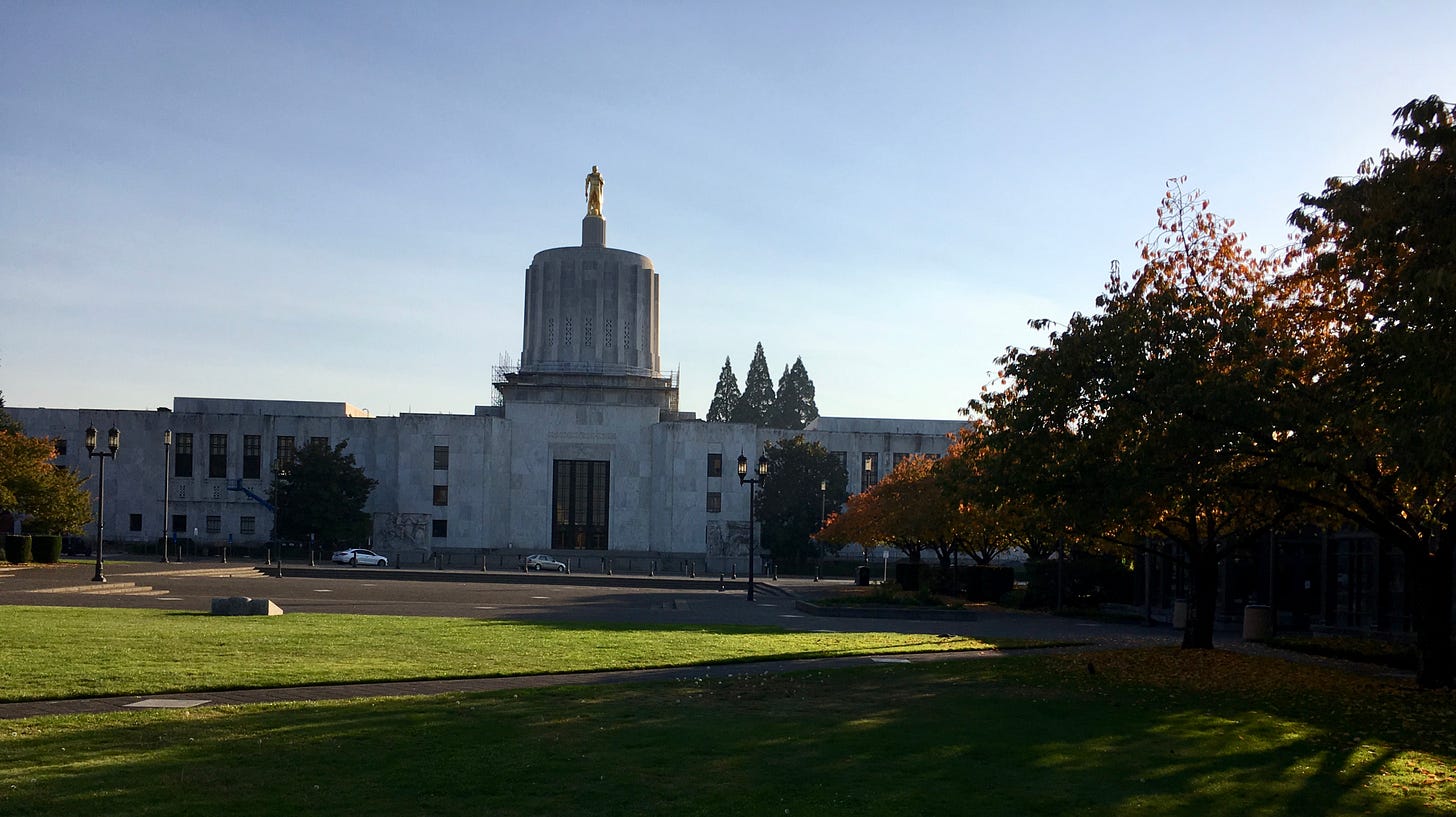“Can’t we all get along?” Revisited
What we have is a whole lot of people struggling mightily to get through a fierce ordeal, in part by claiming more certainty than they really feel
This week I complete my fourth session in the Oregon legislature. All four, longtime Salem watchers tell me, have been surpassingly strange.
2019 and 2020 were disabled by minority walkouts that drew the national spotlight to Oregon for weeks. Walkout threats and the related run-down-the-clock tactic of requiring lengthy bills to be read in full (these days by robot-chipmunk computer voices rather than human clerks) continued into the 2021 and 2022 sessions as well, alongside COVID-19 restrictions that ruptured the traditional connection of citizens to their legislators. Stir in the frantic work of triaging human suffering from the pandemic, wildfire and lethal heatwaves and you end up with the most disrupted four years Oregon government’s seen.
We all feel the disruption. It exhausts and worries us. I worry about the precious time we’ve lost tackling problems we’ve already kicked down the road for too long. But there’s a bigger worry. This pandemic’s deepened our social/political divide such that the polarization of the Obama and Trump years, so troubling at the time, feels in retrospect like courteous philosophical disagreement. Politics and COVID fever have brought many people to a point of sheer contempt and something close to hatred for a broad swath of their Rogue Valley neighbors.
An hour or two on social media makes that clear. There the dueling narratives are:
A fascist wave is rolling across the land, with cowardly sheep bowing down to ruthless tyrants.
We’re dealing with a mob of gullible, paranoid idiots who are content to see some of us die and all of us suffer for the “freedom” to flaunt sensible science-based rules.
You could be thinking one of those narratives sounds about right. If so, it might be time for reflection. Is it likely that tens of thousands of our valley neighbors, people you’ve likely shared volunteer or social or school-connected time with, have turned into monsters and zombies that scorn all your values? I don’t think so either. What I think we have is a whole lot of people struggling mightily to get through a fierce ordeal, in part by claiming more certainty than they really feel and doubling down more rigidly in reaction to the insults they hear from believers in the other narrative. We’re creating a dark and dangerous spiral.
Ponting this out severely annoys some people. “Spare me, dude,” went one response to a recent comment I made online, “from your lame Kumbaya. Those people will destroy this country if they can. Sympathy for them is helping them do it.” I get what he was saying. I want to be clear that the way out isn’t to surrender our core values and belief – for me, the imperative to push every way I can for changes that give our kids and their kids better odds for inheriting a planet with stabler climate and a fairer economy. I don’t care who gets mad in the process. Remembering the humanity of those who menace us doesn’t remotely mean surrendering.
So what does it mean? Three habits help – none earth-shaking or perfect, all practical:
Dial back your consumption of blast-furnace media, those websites and outlets whose business model is poking your reptile brain into anger and resentment.
Find ways to listen fully—and that doesn’t mean thinking up your response while the other person’s talking—to people you like and can’t agree with. This is harder than it should be; check out livingroom.conversations.org for good tips.
Breathe. Often. It makes easier the business of remembering that everyone’s struggling.
Are you skeptical that any of this will help? You should be. Next week marks the 32nd anniversary of the LAPD’s famous beating of Rodney King, who later asked the world “Can’t we all just get along?” The years since point to a big NO on that, and that thinking otherwise isn’t likely to bring a better future.
I don’t know that it will. What I do know is that we Oregonians, we Americans, are edging closer every year to ripping our communities and each other to shreds. So, the really important question probably isn’t whether dealing with each other more respectfully will make much difference. It’s closer to this: What lies ahead if we don’t?
Senator Jeff Golden represents District 3—Medford, Phoenix, Talent, Ashland, Jacksonville and the Applegate Valley—in the Oregon Senate. You can reach him at sen.jeffgolden@oregonlegislature.gov.


Jeff's in an impossible situation. I'm grateful he's open minded and does what he can.
More evidence The Oregon Way is a platform for pious virtue signaling. But then, that *is* the Oregon way these days, isn’t it?